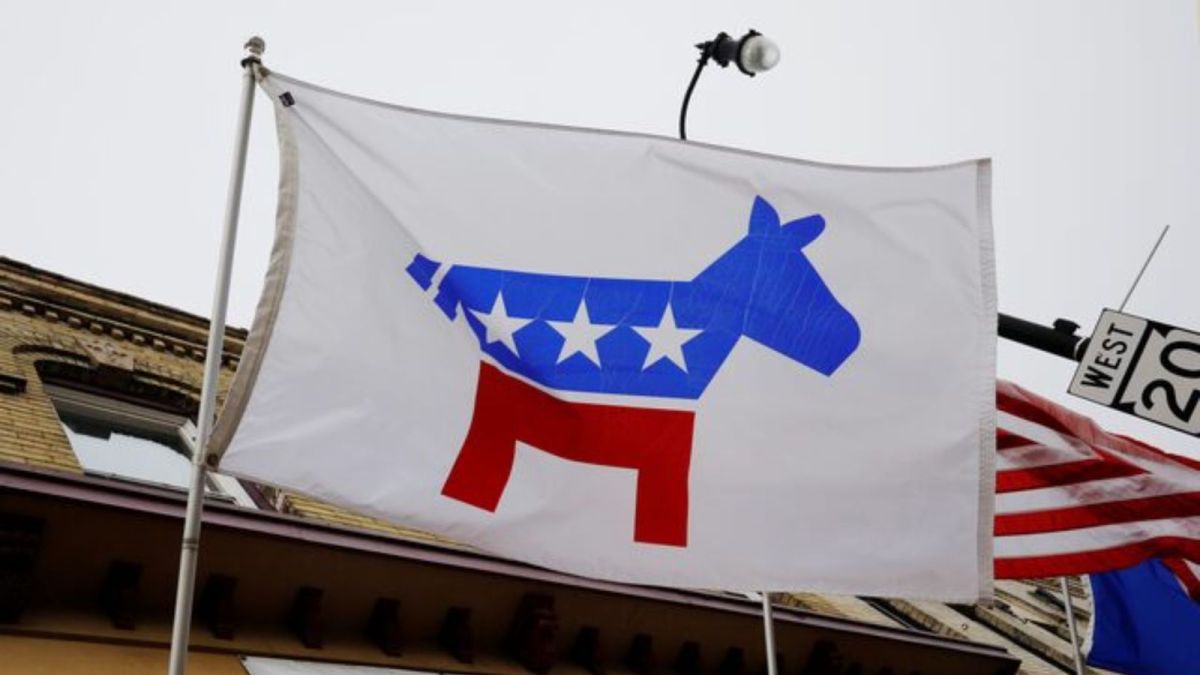The Democratic age wars begin
It has become a far more central political issue for Democrats, who are struggling to find their way out of the wilderness.

by Lisa Lerer
The generational wars have officially begun in the Democratic Party.
In Massachusetts, Rep. Seth Moulton, 46, announced this week that he would challenge Sen. Edward Markey, 79, arguing that a man who has been in Congress for half a century is not “the right person meet this moment and win the future.”
In Maine, Gov. Janet Mills, 77, announced her campaign for Senate on Tuesday, and one of her top primary rivals, Graham Platner, 41, wasted no time before describing the contest as a “generational race.”
And last week in Tennessee, state Rep. Justin Pearson, 30, who captured national attention in 2023 for leading protests on the state House floor after a school shooting, announced a challenge to Rep. Steve Cohen, 76, who has served in public office for nearly half a century.
“Things are very different than they were in 1978,” Pearson told reporters, after a rally in Memphis.
Those three are far from the only Democrats looking at their party and responding with a hearty “OK Boomer.”
A party-wide reckoning
Age affects — and afflicts — members of both parties, of course. President Donald Trump is the oldest man in history to hold his office. The oldest member of the House (Hal Rogers, 87) is a Republican, as is the oldest member of the Senate (Charles Grassley, 92).
But it has become a far more central political issue for Democrats, who are struggling to find their way out of the wilderness.
Of the 10 oldest Democrats in Congress, only one — Rep. James Clyburn of South Carolina — does not face a primary challenger, according to data collected by The New York Times. (Two are retiring: Sen. Dick Durbin and Rep. Danny Davis, both of Illinois.)
In California, nearly a third of the Democrats serving in the House face challengers. Those numbers are likely to grow in the coming weeks, as more candidates announce primary bids. State Sen. Scott Wiener, 55, is preparing to challenge former House Speaker Nancy Pelosi, 85, potentially threatening her hold on the San Francisco seat she has occupied in Congress since 1987. (Pelosi already faces another challenger in Saikat Chakrabarti, Rep. Alexandria Ocasio-Cortez of New York’s former chief of staff, who put $700,000 of his own money into the race.)
Younger Democrats — a group that, given the overall seniority of Washington’s old guard, includes lawmakers well into their 50s — have complained about their party’s gerontocracy for years. In 2022, they successfully elected a younger generation to lead their party in the House, replacing Pelosi with Rep. Hakeem Jeffries, who is 30 years younger.
Their arguments gained traction after Joe Biden’s disastrous debate performance last year, with questions still lingering about his fitness to serve in his final months in office, or to run for reelection.
‘We have to renew our party’
In Connecticut, Luke Bronin, 46, the former mayor of Hartford, is challenging Rep. John Larson, 77, whose complex partial seizure on the House floor in February drew widespread attention and news headlines. Larson, who has largely run unopposed in recent elections, insists he’s fit to serve a 15th term in Congress.
“There is a deep feeling in the Democrat party that we have to renew our party and just get a whole different level of energy and forcefulness and focus,” Bronin said in an interview. “This has got to be moment when we’re willing to look ourselves in the mirror and make some big changes.”
For many challengers, the age critique goes beyond fitness to serve. Younger Democrats are saying the unique political threat they see in Trump demands new ideas, tactics and ways of communicating. They’re questioning the older lawmakers’ ability to lead in a political moment that’s very different than when they began their careers.
“It’s not about how old you are,” said Platner, in an interview on MSNBC. “It’s about how old your ideas are.”
(Older Democrats, including Markey, have used similar language as they insist their ideas are indeed fresh, even if their birth date is not.)
At least a few older members have sensed a change in the political winds. In recent months, several have declined to run for another term, with many — including Rep. Jerrold Nadler, 78, of New York and Sen. Tina Smith of Minnesota, 67 — explicitly citing the need for a new generation to take the helm.
But others have vowed to fight on.
“I’ve been effective from age 26 to age 76, and I’ll be effective at age 77 and at age 78,” Cohen said. “Because I do one thing, and I do it well, and that’s legislating.”
The argument is remarkably similar to the one made by Biden during his doomed reelection campaign. The question now is whether Democratic voters still listen to their elders.
This article originally appeared in The New York Times.